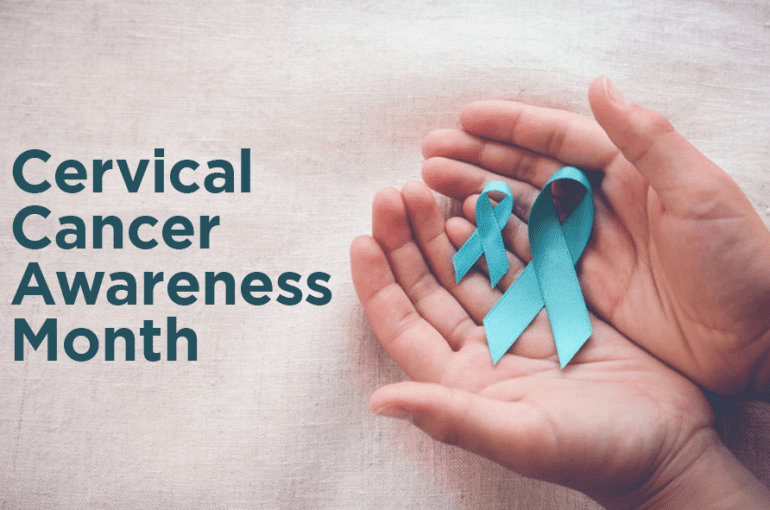
Nutrition and Lifestyle for Cervical Cancer Prevention Week
Let’s talk prevention, my absolute passion when it comes to anything health! After all prevention will always be better than cure. 600, 000 women were diagnosed with cervical cancer worldwide in 2020, yet it is one of the most preventable forms of cancer.
I have seen lot’s on social media about the importance of screening recently for #cervicalcancerawarenessmonth and #cevicalcancerpreventionweek and I echo the importance of getting your regular smear tests.
However, I also wanted to talk about the emerging research highlighting nutrition and lifestyle related prevention strategies. As well as new thinking on why some are more susceptible to HPV infection, cervical intraepiothelial neoplasia (CIN) and cancer progression.
Infection and inflammation play a role in many cancers and this is true for cervical cancer. It is well documented that HPV infection is a prerequisite for cervical cancer developing.
HPV infection, cervical cancer and susceptibility
Up to 80% of women will be exposed to the HPV virus at some time in their lives. Unfortunately, a portion go on to develop cervical cancer, while in others the infection will resolve itself. This implies it is not all about the virus and there are other individual risk factors involved that may influence susceptibility.
The vaginal microbiome
Did you know that there is a microbiome present on surfaces providing a physical barrier between the internal world of your body and the external environment? This includes the gut, skin, lungs and respiratory tract, urinary tract, and also includes the vagina. Your microbiome plays a key role in your health and that of your immune system to protect against infection. So it makes sense that your microbiome and immune system are intimately connected.
A well functioning immune system helps to prevent cancer cells forming and progressing into tumours. Recent studies have suggested a link between the vaginal microbiome composition, HPV infection and progression of cervical dysplasia and cancer.
What can influence your Microbiome
Many things can impact your microbiome including infections, genetics, medications such as antibiotics, birth and infant feeding, diet, lifestyle, stress, environmental toxins including smoking and mould, among others.
All of these influence the composition of our microbiome and immune function when dealing with infection. Understanding personal risk factors may be helpful to keep HPV infection, cervical dysplasia and cancer at bay.
While some factors that influence the health of our microbiomes are out of our control, there are things that can positively influence it. A healthy microbiome is a diverse one and nutrients plays a key role in the diversity and health of the vaginal microbiome.
What you can do to support your microbiome and health
An important piece of the prevention puzzle is nutrition and lifestyle. Eating a wide diversity of colourful fresh plant-based foods such as vegetables, fruits, nuts, seeds, pulses, legumes, herbs and spices can help to support a healthy robust microbiome. This has been shown in studies to reduce your risk of HPV.
Foods that are rich in antioxidants help to protect against damage to DNA, support the immune system and inhibit cancer growth factors. Low levels of antioxidants have been associated with cervical cancer.
Some studies have shown certain nutrients are important for the prevention of cervical cancer. Vitamin D, vitamin A and carotenoids may inhibit early progression. Folate may prevent or inhibit HPV infection from developing through the stages of CIN. Plus vitamin C and vitamin E may inhibit the development of cervical cancer.
It is important to note that food sources of these nutrients are safer than the supplement form. High doses might interfere with medications or treatments, unless recommended by a practitioner who understands your personal circumstances.
Generally eating less processed foods has been shown to reduce the risk. High sugar, high fat and certain nutrient deficiencies can alter the pH of the vagina, influence the vaginal microbiome making an individual more susceptible to HPV infection.
It is not all about diet though. Don’t forget about finding healthy ways to manage stress, get some sunshine, move your body, and reduce your exposure to toxins in your environment.
Stay well.
If you would like more detailed personalised advice, I offer 1:1 personalised nutrition consultations, or if you just want to find out more, please get in touch.
For other support related to cervical cancer screening or post diagnosis I recommend:

Wonderful views on that!
Thanks for your comment.
I was just telling my friend about that.
I didn’t know that.
Wonderful views on that!
Thank you for your comment